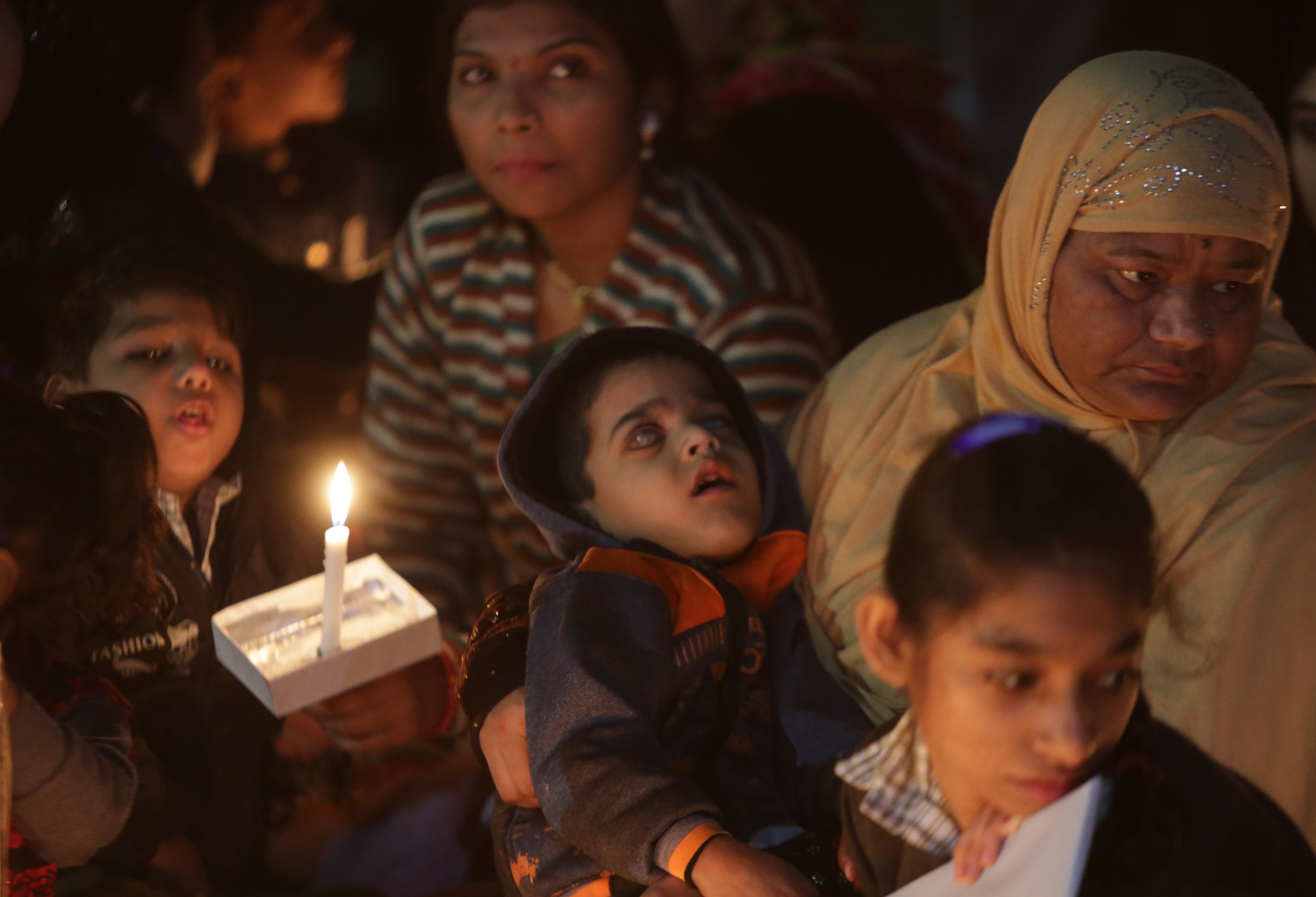Bhopal: Survivors of industrial accident make up over half of Covid-19 victims in Indian city
Coronavirus has provided fresh tragedy for the city devastated by a gas disaster, reports Stuti Mishra


The survivors of the 1984 Bhopal gas disaster are six times more prone to Covid-19 infections and account for more than half of the total coronavirus deaths in the capital city of Madhya Pradesh in India, advocacy groups say.
Bhopal, a city of more than 2 million people, has recorded more than 500 deaths to date from the pandemic, and over 30,000 cases.
Analysis by an organisation representing gas disaster survivors found that of the 450 deaths up to mid-October, 254 involved people who were exposed to the 1984 accident.
Bhopal suffered what is widely regarded as the world’s worst ever industrial disaster on the night of the 2 December 1984, when a toxic gas cloud leaked out of the Union Carbide plant and swept over a quarter of the city, impacting more than 570,000 people and resulting in the deaths of over 5,300.
Survivors make up 17 per cent of the city’s population, and the new analysis found that they have been around 6.5 times more susceptible to Covid infections than the general public.
More than 35 years have passed since the accident, but those exposed to the gas continue to live with life-threatening illnesses and have also given birth to children with higher rates of physical and mental disabilities, rights groups say.
Activists have been fighting for decades to ensure a clean-up of the gas leak site, but it is still yet to happen despite promises made by successive governments. Michigan-based Dow Chemical took over Union Carbide in 2001.
Rachna Dhingra of the Bhopal Group for Information and Action told The Independent that before the nationwide lockdown was imposed in India they had written to Madhya Pradesh government as well as the federal government to caution that “there will be five times more death rate" if “special attention" is not paid to Bhopal gas disaster victims.
However, no steps were taken despite repeated reminders, said Ms Dhingra.
Several families of gas disaster victims recounted similar stories of a lack of support from the local authorities despite the alarming case numbers, and noted that the situation in Bhopal’s special gas victim-designated hospitals was particularly grim.
Aqueel Razi, whose mother Shaheen died of Covid-19 in April, said he took her to the Bhopal Memorial Hospital and Research Centre (BMHRC), which only caters to gas leak victims, but they refused to admit her. He said they instead referred her to another coronavirus centre without testing, stating that they “do not cater to coronavirus patients”.
“They were refusing to admit her… I pleaded with officials to get her checked,” Mr Razi told The Independent.
He says his mother, despite suffering from pre-existing medical conditions due to the gas leak, did not receive proper treatment in the Covid-designated hospital either, and died four days later.
Gaurav Khati, lost his father Naresh to Covid-19 as well. Mr Khati said he took out a loan of Rs 90,000 (£912) to pay for his father’s treatment after he was refused admission in the BMHRC hospital on 2 April. The hospital is required to cater to gas leak victims for free.
“My father always had breathing issues because of the gas leak," he said.
None of the gas victims has received any monetary help for Covid-19 from the authorities so far, although they are entitled to free treatment, Ms Dhingra added.
She said that people with respiratory, cardiovascular and kidney ailments are most prone to coronavirus, and at least 60 per cent of gas leak survivors suffer from such conditions.
Officials in the Madhya Pradesh state government’s department for gas leak victims refused to answer queries or take calls fromThe Independent. But an official at the BMHRC hospital admitted that it stopped taking in gas disaster patients for several days after the state government decided to turn it into a Covid-19 centre.
“The hospital was going through a transition and was shut down for a few days, however the government decision was protested by the organisation of gas leak victims and it was later overturned,” said the official.
Rashida Bee, president of a women’s-specific group of gas disaster victims, said the pandemic "has exposed the official lie that 93 per cent of those exposed to Union Carbide’s poisonous gases had only temporary injuries”.
“It is time the Indian government presented these and other hospital records before the Supreme Court, which is yet to hear the curative petition for additional compensation for damages caused by the December 1984 disaster,” said Nawab Khan, president of another victims’ organisation, the Bhopal Gas Peedit Mahila Purush Sangharsh Morcha.
The groups have demanded that Union Carbide and its owner Dow Chemical pay additional compensation for the long-term injuries caused by gas exposure, as evidenced by the Covid-19 pandemic.
Ms Dhingra said: “Union Carbide’s own documents state that the injuries caused by exposure to Methyl Isocyanate are permanent in nature yet more than 90 per cent of the exposed people have been paid only US$500 as compensation for temporary injuries.
“It is a pity that it took a global pandemic to highlight the injustice meted out to the victims of the world’s worst industrial disaster,” she said.




Join our commenting forum
Join thought-provoking conversations, follow other Independent readers and see their replies
Comments